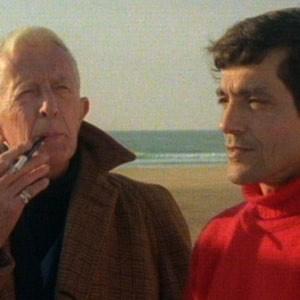
The Story
For filmmaker Nordin Lasfar, who grew up in the Netherlands as the child of Moroccan parents, author Paul Bowles opened the door to literature and stories from the land of his forebears.
In the 1960s and 70s, Tangier was known for its extravaganza and became a base for Western artists and writers of the Beat Generation, among them Bowles.
Mohammed Mrabet, a fisherman’s son and storyteller in the Moroccan oral tradition, became a central figure in those circles. Although illiterate, he gained wider recognition when Bowles transcribed and published his stories. In a setting where creativity and free morality went hand in hand with colonial inequality and racism, a complex relationship developed between the two.
Now in his late eighties, Mrabet, a master at interweaving fantasy and reality, looks back. Fragments of his stories, recorded on dozens of cassette tapes, are complemented by magical-realist AI images, a giant fish that talks, a melon that houses a palace, honey flooding a river, diamonds scattering in the alleys of the medina.
Through archival material, interviews, and street scenes, the filmmaker goes in search of this remarkable literary bond and asks the question: who actually owns the stories?
What does it mean when your voice is heard through someone else’s pen?
What does it mean when your voice is not heard without someone else’s pen?
Mohammed and Paul in Tangier

